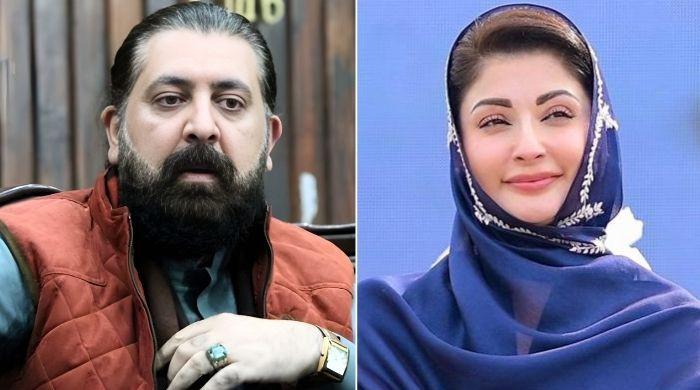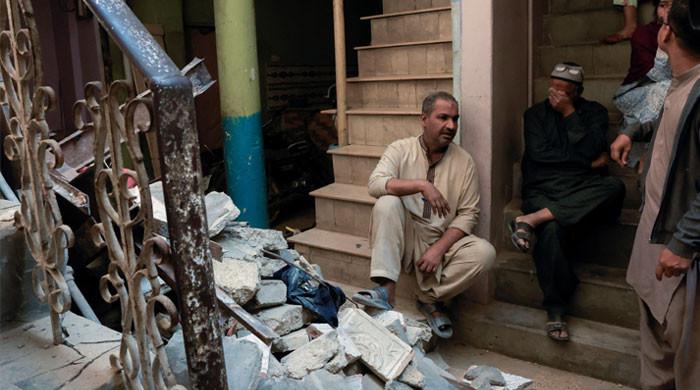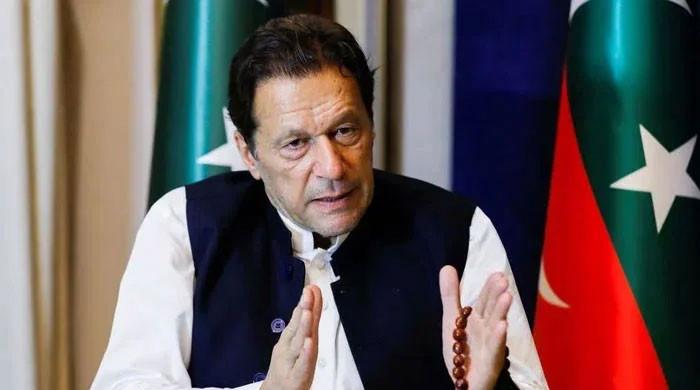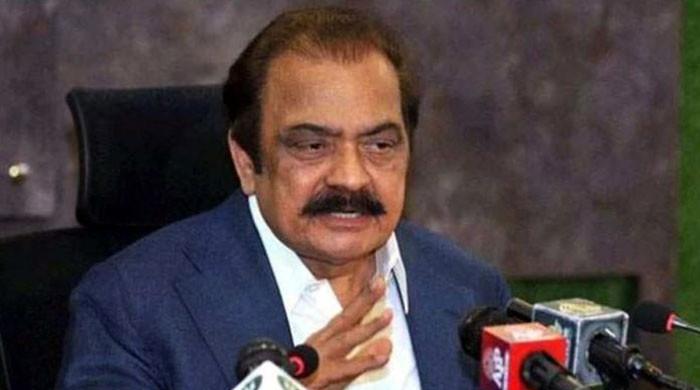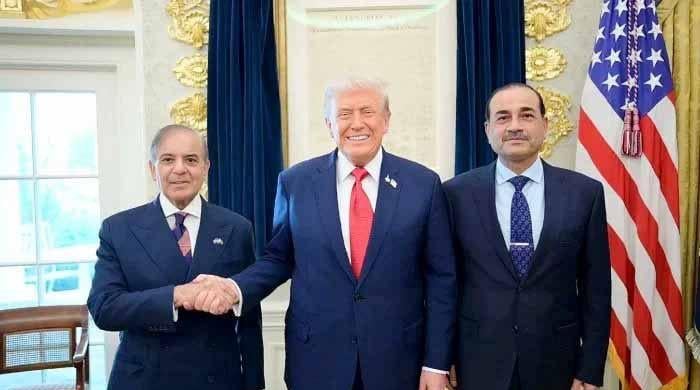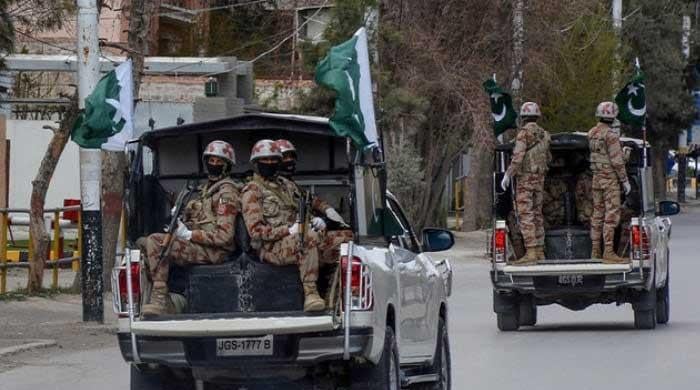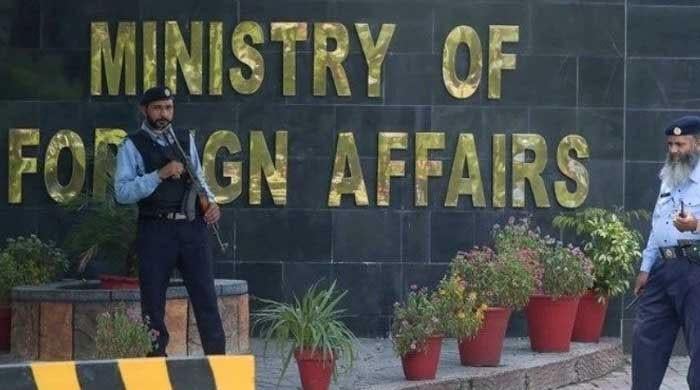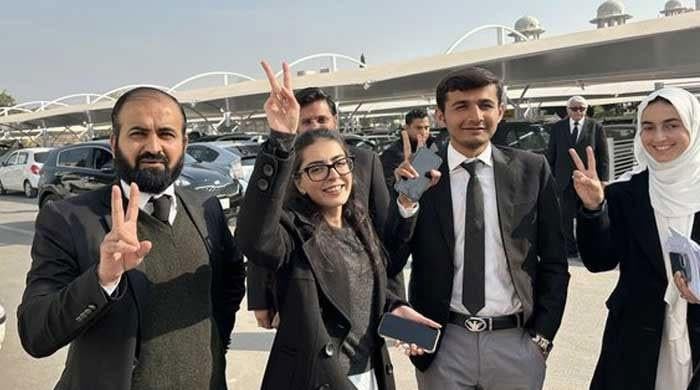Tasneem Haider Shah contradicts his lawyer over murder conspiracy 'evidence'
Scotland Yard has not taken any action against any of the persons accused by Shah in his first press conference
November 24, 2022
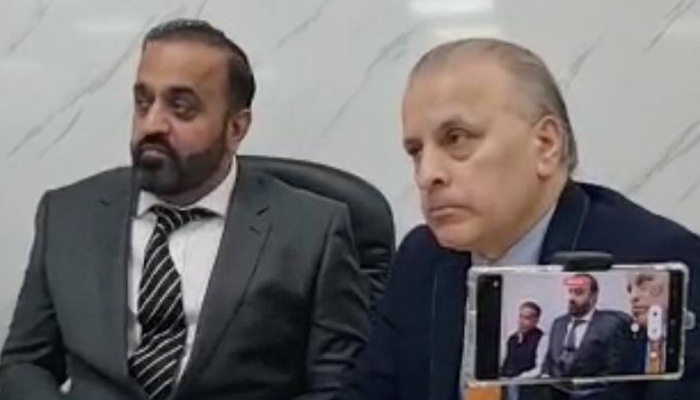
LONDON: Syed Tasneem Haider Shah — who has said he was involved in a secret murder plot to kill former prime minister Imran Khan and journalist Arshad Sharif — contradicted his lawyer at the second press conference on the key issue of any evidence of the murder conspiracy.
Shah, addressing a press conference with his lawyer Mahtab Anwar Aziz, who has been a PTI lawyer for nearly two decades, spoke about the evidence of the alleged murder conspiracy involving PML-N supremo Nawaz Sharif and PML-N UK leader Nasir Butt.
However, during the presser, the client and the lawyer contradicted each other.
When asked why Scotland Yard didn’t act upon their evidence and made arrests as Scotland Yard’s counter-terrorism unit does so when it takes evidence seriously or has a good intelligence lead, both Shah and Aziz accepted that so far Scotland Yard has not taken any action against any of the persons accused by Shah in his first press conference.
Aziz sat next to Shah during the first press conference and accused Butt and Nawaz directly of being involved in the murder plan and backed up his client’s allegations at his office in East London.
Aziz had submitted a complaint against Nawaz and PML-N Vice President Maryam Nawaz to Scotland Yard on November 5 after former PM Khan was attacked in Wazirabad.
But so far, the police have taken no action on his first report; no interviews have been conducted and the police have made no contact with any of the accused.
Aziz then hosted a press conference with Shah on November 20 at his office where Shah claimed he was the spokesman of PML-N and that he had concocted a conspiracy at three meetings with Nawaz, Butt, Anjum Chauhdry, and eight other PML-N activists in London to plan the killing of Khan and journalist Sharif — who was killed in Kenya on October 23.
Shah then told the media that he had handed over evidence through Aziz to Scotland Yard on November 18 and November 19, before doing the press conference on November 20.
Shah had also said that Aziz had passed evidence of the murder plot to the police on November 18 and took him to the police station on November 19 where more evidence was shared with the police.
Shah then accepted in his second interview that he didn’t have any evidence of any kind and had not given anything to the police against Nawaz Sharif and Nasir Butt.
He said: “The police have told me they don’t need any proof from me. I am the living proof; I am the evidence.”
Confirming that he was liaising for the first complaint by a British-Pakistani man against Nawaz Sharif and Maryam Nawaz and the second complaint by Shah against Nawaz and Butt, solicitor Aziz claimed at the second press conference on November 22 that he had given evidence to the police on three occasions.
He said: “I have given evidence to the police on 5, 10 and 19 November.”
When asked why the police had taken no action in three weeks over the first complaint and no action over the second murder conspiracy complaint, Aziz said this is a complex investigation involving forensics and that the police were working on the case — but the police have not contacted anyone accused in the two complaints.
Butt and Chaudhary, who were accused by Shah, said on Wednesday they had gone to the police station themselves to report Shah over his allegations.
Both of them said the police told them they were under no investigation and the police had nothing against them. They said that Shah and Aziz had lied during the press conference.
Butt said that he had already reported Shah to the police and will be taking civil legal action against Shah and his solicitor Aziz.
A criminal law expert and Crown Prosecution Service (CPS) prosecutor — requesting anonymity — said that Shah had implicated himself “very seriously in relation to conspiracy to murder by accepting they had a meeting and agreed to kill Khan which could have catastrophic consequences in him being charged by the crown prosecution service”.
“To prove conspiracy to murder, the prosecution must show that those accused were acting together, in an express or implied or assumed ‘agreement’. They must also show, with direct or circumstantial evidence, the intention to murder or intention to cause really serious injury," he said about the law.
"The role of the prosecution is to prove that the accused were acting together with some type of ‘agreement’ between them. This might be implied or assumed, but causing very serious injury or death was intended.”




